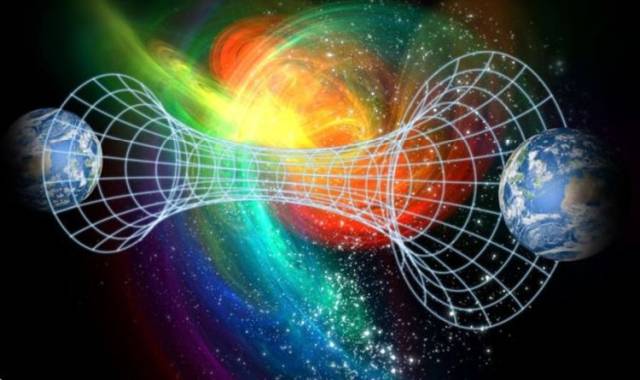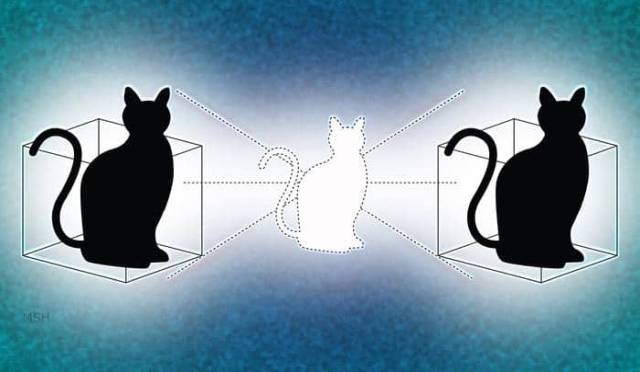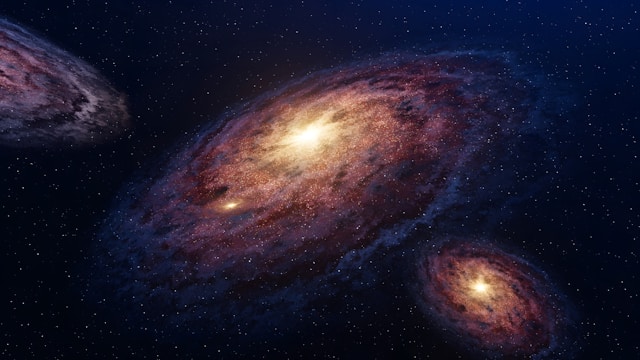Have you ever had one of those moments where you felt like you stared death right in the face? Maybe it was a close call on the highway, a sudden health scare, or even just lying awake at night thinking about how, sooner or later, we all reach the end of the line. It’s a universal experience—contemplating our own mortality. But here’s where things get really wild: what if I told you there’s a mind-bending idea straight out of quantum physics that suggests your consciousness might always find a way to keep going? Seriously. This isn’t some far-out sci-fi plot; it’s something called Quantum Immortality. So let’s dive into this fascinating (and maybe a little unsettling) theory and see how it completely flips our usual ideas about life and death.

So, What Exactly Is Quantum Immortality?
Alright, at its core, quantum immortality is the idea that your consciousness never actually experiences its own end. I know—it sounds crazy at first! But stick with me. Imagine you’re in a situation that could kill you. According to this theory, if there’s even the tiniest chance that you survive, your conscious experience will somehow always end up in that “survival” outcome. In other words, from your point of view, you’ll always find yourself in the branch of reality where you made it through. Now, this doesn’t mean you can’t get hurt or grow old—just that, whenever it comes down to a life-or-death moment at the quantum level, your awareness follows the path where death didn’t happen.

The Quantum Weirdness Behind It All
This isn’t just someone’s late-night philosophy ramble; Quantum Immortality is actually rooted in some of the weirdest parts of quantum mechanics.
1. The Many-Worlds Interpretation (MWI)
The big foundation here is something called the Many-Worlds Interpretation, or MWI for short—first dreamed up by Hugh Everett III. Basically, MWI says every time anything can go more than one way at the quantum level (which happens constantly), reality splits into parallel universes so every possible outcome gets its own world. Instead of just one reality, we’ve got an endless multiverse branching off in every direction! Here’s why this matters: if every possible version of an event happens somewhere out there—including ones where you survive—then there are countless universes in which you dodge death.

2. Quantum Superposition
Before anything is measured or observed in quantum land, particles can exist in multiple states at once—a phenomenon known as superposition. You’ve probably heard about Schrödinger’s cat: until someone peeks inside the box, the cat is both alive and dead at the same time! When we think about Quantum Immortality, before that fatal event plays out, you are both dead and alive across all these parallel realities. MWI says both outcomes are real—just not in the same universe.

3. The Observer Effect
Now here’s where things get really trippy: quantum mechanics says that by simply observing or measuring something at this level, we “collapse” all those possibilities into just one outcome—the so-called observer effect. In terms of Quantum Immortality, it suggests your very consciousness acts as this observer and always ends up collapsing reality into a version where it keeps going.
What Does This Mean for Life and Death?
So what does all this mean for our actual lives? Well, if this theory holds any water (and yeah—it’s still super speculative!), it would totally change how we think about dying. No promises of eternal youth or being injury-proof—you’d still get older and could have plenty of bad days—but when it comes to those split-second moments between life and death? Your conscious experience would skip over to some universe where disaster was narrowly avoided.
It’s pretty different from traditional afterlife beliefs most religions offer—no heaven or reincarnation here! Quantum Immortality isn’t about transcending physical existence; it’s about sticking around in some version of physical reality forever. Kind of makes you rethink what “the end” really means.
Is There Any Real Science Here?
Let’s be honest: quantum immortality isn’t its own standalone scientific theory—it piggybacks off interpretations like Many-Worlds (which is itself hotly debated among physicists). There aren’t direct experiments proving or disproving it either.
The classic thought experiment here is “quantum suicide.” Picture someone using a gun hooked up to a device that measures quantum spin: each pull has a 50/50 chance—either bang or click. From everyone else’s perspective, eventually they’d die. But if Quantum Immortality is right? The person would only ever experience click after click after click… from their own viewpoint anyway! Of course, nobody is suggesting anyone actually try this—it’s just meant to illustrate how bizarre things get when you take these ideas seriously.

A quick myth-busting break:
- No—you won’t stop aging.
- Don’t start jumping off roofs expecting to live forever (most versions of reality will not be kind).
- Survival doesn’t guarantee happiness; sometimes surviving means living through tough stuff.
- And no—it isn’t accepted science yet; we’re firmly in “what if?” territory here.
Consciousness Gets Complicated
Here’s another mind-boggler: if your awareness keeps hopping into timelines where you survive… what happens to all those other versions of “you” who don’t make it? Are they gone for good? Does your sense of self splinter with every branch? Honestly—nobody knows for sure! This kind of thing sits at the intersection between physics and deep philosophy about identity and consciousness itself.
Ever had déjà vu or felt like reality glitched for a second? Some people half-jokingly wonder if these are faint echoes from neighboring universes where something played out differently!
Pop Culture Loves This Stuff
It probably won’t surprise you to hear that quantum immortality pops up all over pop culture—from sci-fi novels to TV shows like Devs and Russian Doll. We love exploring “what ifs,” especially when they touch on near-death experiences or living alternate lives side-by-side with our own.

Does Life Lose Meaning If You Can Never Die?
Let’s talk big picture for a second: if your consciousness really could keep dodging death forever… does life lose its meaning? Or does knowing every action spins out new realities make everything feel more important? Some folks think subjective immortality would make consequences meaningless; others argue it raises huge questions about responsibility across infinite lifetimes!
Wait—Does This Prove There’s Life After Death?
Here’s a question people ask all the time: “So does quantum immortality prove life after death?” Not exactly—not in any spiritual sense anyway! Instead of floating off to heaven or reincarnating elsewhere, this idea says your awareness just sort-of sidesteps death by shifting into another surviving timeline within our physical multiverse. It stays rooted in physics rather than spirituality.
Quick Recap for Beginners
Okay—let’s sum things up:
- The Many-Worlds Interpretation says every possible outcome creates new universes.
- Whenever something could kill you but doesn’t quite manage it somewhere out there—you’ll find yourself surviving.
- Your conscious experience always follows survival.
- So from your point-of-view… you’re immortal (at least until proven otherwise).
- That doesn’t mean no pain or suffering; just skipping fatal events.
- And again—it remains wildly speculative!
Wrapping Up: A Wild Possibility
So yeah—Quantum Immortality sits right on the edge between cutting-edge science and total mind trip territory! It pushes us to rethink what consciousness means and just how strange reality might be beneath the surface.

Will we ever know for sure if it’s true? Who knows! Still, pondering these questions reminds us how mysterious—and downright amazing—the universe really is. Have you ever survived something against crazy odds? Makes you wonder… was it luck—or something stranger?
Anyway—I’m curious: does any part of this theory resonate with you? Or do you think it’s just too far-out? Either way, it’s definitely food for thought—and hey, conversations like these are exactly what makes exploring science so much fun!
